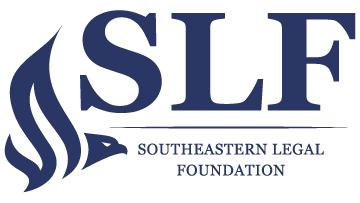At East Carolina University (ECU), hundreds of student athletes, coaches, and members of the faculty and staff gathered on campus for a protest. The only problem: ECU has banned all gatherings over 50 people. So why are some students allowed to exercise their First Amendment rights, but not others? SLF posed this question today in a demand letter to the University. In the letter, SLF seeks clarification about ECU’s COVID policies, especially when it comes to student speech.
Read More
On August 23, 2020, ECU announced significant changes in the fall semester due to COVID-19.1 However, many students remain on campus, and the University has indicated that it plans to reopen in the spring. On its COVID website, ECU states that gatherings of 50 or more people—on or off campus—are banned until further notice.
The University requires members of the community to observe social distancing of at least six feet. ECU provides a detailed description of the procedures that will be taken when students are reported for violating COVID policies and a list of “possible sanctions,” though it does not indicate when specific sanctions will apply. Finally, the University permits students to report their COVID symptoms and the symptoms of others, but it warns that misuse of the Reporting Form could result in disciplinary action.
On September 11, 2020, the ECU Police Captain reported that 17 students had been referred to the Office of Student Rights and Responsibilities “for violations of rules against large gatherings in off-campus locations.” However, on August 31, 2020, members of the campus community—including athletes, coaches, and administrators—protested in an outdoor area of campus. Photographs show these individuals standing less than six feet apart.
ECU has punished nearly 20 students for violating social distancing and gathering policies. But when dozens of students protested racial inequality, ECU looked the other way.
Viewpoint discrimination occurs when a university either promotes or discourages speech based on beliefs or ideologies. Viewpoint-based restrictions are never constitutional. When a public university bans discussion of certain topics or prohibits certain speech activities from occurring, the restriction is considered content-based. Unless a university can demonstrate a compelling government interest, content-based restrictions cannot survive judicial review. A university must show that its speech restriction is content-neutral and only restricts the time, place, or manner of speech. Furthermore, the United States Supreme Court has held that schools should adhere “to a rule of viewpoint neutrality” when it comes to student organizations.
ECU prohibits gatherings of 50 or more people on and off campus. But recently the University allowed—and even encouraged—hundreds of members of the community to gather for an on-campus protest without maintaining social distancing. The University has denied that right to other students and student organizations, disciplining as many as 17 students for violating its COVID policies. In doing so, the University has effectively elevated the views and goals of the student athletes and fellow protesters over other student organizations. This amounts to viewpoint and content-based discrimination in violation of students’ First Amendment rights.
Speech is chilled when a speaker objectively fears that speaking will result in discipline, and as a result censors her speech altogether. The Supreme Court repeatedly writes that the danger of chilling speech “is especially real in the University setting, where the State acts against a background and tradition of thought and experiment that is at the center of our intellectual and philosophic tradition.” Any action taken by university authorities that has a chilling effect on student speech is unconstitutional. Although students should always be encouraged to exercise their First Amendment rights, universities must do so neutrally. By participating in, applauding, and encouraging the student athlete protest on campus, ECU has taken a position in favor of specific topics and viewpoints.
This will have a chilling effect on student speech, particularly when the student body returns to campus. The University has shown that it values the student athlete protest over the planned events and gatherings of other students. Students will no doubt be deterred from hosting events in the future—regardless of the number of people—for fear of backlash from administrators. For example, if students had engaged in a counter-protest to the student athletes, would the University have allowed them to proceed? Or would it have shut the counter-protestors down? In this way, students are concerned that they cannot engage in speech activities because the University has positioned itself in favor of specific views and actions.
In its letter, SLF requests that the University permit all students to engage in free speech activities, subject to reasonable time, place, and manner restrictions. It is especially during times of uncertainty that students must be able to gather and engage in discourse without fear of reprisal.
